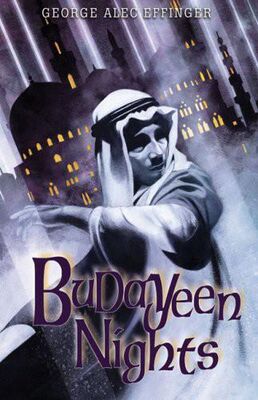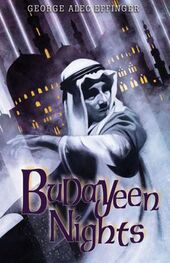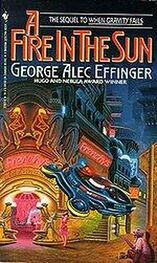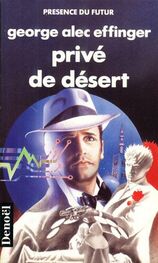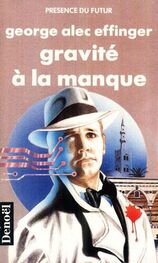He wondered about his sanity for a moment. Perhaps the day’s excitement, perhaps the liquor, had introduced a painful madness into his recollections. He realized that, in point of fact, he had never been married. Gretchen, again? Where had that name come from? Who could she be? Steven, the fantasy son? Ernst’s father’s name had been Stefan, perhaps there was some connection.
He called to M. Gargotier. “More whiskey, straight, no water.” He wanted to believe that there was still some darkness left, but he could already make out the lines of the hotel across the street, just beginning to edge clearly into view from the mask of nighttime.
“I have never traveled anywhere ,” he admitted in a whisper. “I did not come from anywhere.” He sat silently for a few seconds, his confession hanging in the warm morning air, echoing in his sorrowing mind. Will that do ? he wondered. He looked in vain for M. Gargotier.
He could almost read the face of the clock across the street. He picked up his glass, but it was still empty. Angrily, he threw it toward the clock. It crashed into pieces in the middle of the street, startling a small flock of pigeons. So it was morning. Perhaps now he could go home. He rose from his creaking latticed chair. He stood, wavering drunkenly. Wherever he turned, it seemed to him that an invisible wall held him. His eyes grew misty. He could not move.
“No escape,” he said, sobbing. “It’s Courane that’s done this. Courane and Czerny. He said they’d get me, the bastards, but not now . Please.” He could not move.
He sat again at the table. “They’re the only ones who know what’s going on. They’re the ones with all the facts,” he said, searching tiredly for M. Gargotier. He held his head in his hands. “It’s for my own good, I suppose. They know what they’re doing.”
His head bowed over the table. Soon he would be able to hear the morning sounds of the city’s earliest risers. Soon the day’s business would begin. Not so very long from now, M. Gargotier would arrive again, greet him cheerfully as he did every day, roll back the steel shutters and bring out two fingers of anisette. Now, though, tears dropped from Ernst’s eyes onto the table’s rusting circular surface. They formed little convex puddles, and in the center of each reflected the last of the new morning’s stars.
Introduction to
The Plastic Pasha
This is what George had to say about “The Plastic Pasha”:
“It’s about Marîd Audran’s kid brother (I’ve mentioned in the books that their mother sold the younger brother when they were young). He’s grown up now and become the ruler of Algeria. I don’t think Marîd ever meets him, though. The story’s about the official acceptance of the brain-wiring technology in the Islamic world…Somebody comes up with a personality module of the perfect Islamic governor, and that leads to a battle over who is qualified to wear it….”
George had also told me that the personality moddy was that of Thomas Jefferson — one of George’s personal heroes — thus leaving the reader with the rather puzzling question of who’s really in charge here?
George’s relationship with his own brother was stormy and difficult, and they finally became estranged about three years before George’s death. I don’t know how, or if, that would have translated into this story, or which of the characters we’ve met so far, in the few pages that he wrote, is the protagonist, if any.
George finally began work on this story the week of April 15, 2002; I got this fragment off his computer’s hard drive after he died.
— Barbara Hambly
TO THE NORTH OF THE CITY OF BEKHAOUT WAS A narrow pass through the mountains to the coastal lowlands and the sea. Around the city to the east, west, and south was a wide hardscrabble plain, and not far from the ancient fortified walls flocks of sheep foraged where sun-scorched grass still grew. They grazed unaware of the day’s significance, although some would be selected as sacrifices to mark the Great Feast, celebrated throughout the Islamic world as the culmination of the year’s pilgrimage to Makkah.
A fresh wind blew fine grit and sand first from one direction, then another. Two men in khaki uniforms held a struggling black ram, while a third man hobbled it with ropes. A fourth man, much older than the others, watched with shrewd eyes. In his youth he had stood tall and straight, but now he was bent over, leaning on a stout wooden staff. He wore a clean white shirt buttoned to the neck, with its shirttails flapping over black trousers, a white robe over them, leather sandals on his feet, and on his head the turban of a scholar of the Qur’ân. “This is a good animal,” the old man said in a dry, hoarse voice.
“It’s the finest ram on the plain of Bekhaout, Imam Abbas,” one of the uniformed men said. He and his fellows had begun to decorate the animal with long satin ribbons of scarlet, blue, yellow, and green.
“Soon the ulema will choose a new leader for our country,” the imam said thoughtfully. “Then next year, Allah willing, that man will relieve me of this privilege.”
The three soldiers were startled. “But, Wise One,” one of them said, “it’s a holy tradition.”
“Yes,” the imam said, sighing, “and when I perform it, I recall the faith of Father Abraham when the Lord directed him to sacrifice his son, Ishmael. Yet of all my duties, it’s the least pleasant. Now, hold this beautiful animal still. His head must be turned toward Makkah — that way.” The old man pointed across the plain with one long, bony forefinger.
“The sword, Wise One,” said the third man, who wore a sergeant’s uniform. He drew a magnificent gold-hilted ceremonial blade from its jeweled scabbard and passed it to the imam.
Imam Abbas took the sword in his right hand. “In the name of Allah,” he said in a loud, clear voice. He slashed the helpless ram’s throat and said, “God is most great.” Then, without turning his head, he handed the bloody sword back to the sergeant who held the scabbard.
“I’ll take the ram to the qadi,” the second man said. He was younger than the others, and his face was flushed with excitement.
“Ride quickly,” Imam Abbas said. “If the ram is still alive when you arrive at the house of the qadi, then there will be peace and good fortune in Bekhaout for the next year.”
The young man grinned. “That’s why I’m using the jeep and not my horse,” he said. The three soldiers wrapped the terror-stricken ram in a blanket and threw it into the back of the open jeep.
“Go with God, Salim!” shouted one of the other men. They watched as he got behind the steering wheel and roared off across the stony plain toward the gates of the city, raising a thick, choking cloud of dust behind him.
“Superstition,” the imam muttered. The two soldiers overheard, and exchanged glances.
“Imam Abbas,” the sergeant said, “you have no horse.”
“No,” the old man said, “I walked here from the city.”
“May I offer you my own horse to return, Wise One?”
The imam smiled but shook his head. “Thank you, sergeant, but I wish to go back on foot as well. For me, the most pleasant part of this day’s observance is to be left alone to meditate, here beyond the ramparts of the city. I enjoy the exercise.”
“As you wish, Wise One,” said the sergeant. “I return to you the Sword of the Sharif.”
The imam took the ceremonial weapon and watched the sergeant and his companion mount their horses. They saluted the old man, then wheeled their mounts and set off after the jeep at an easy trot.
Читать дальше